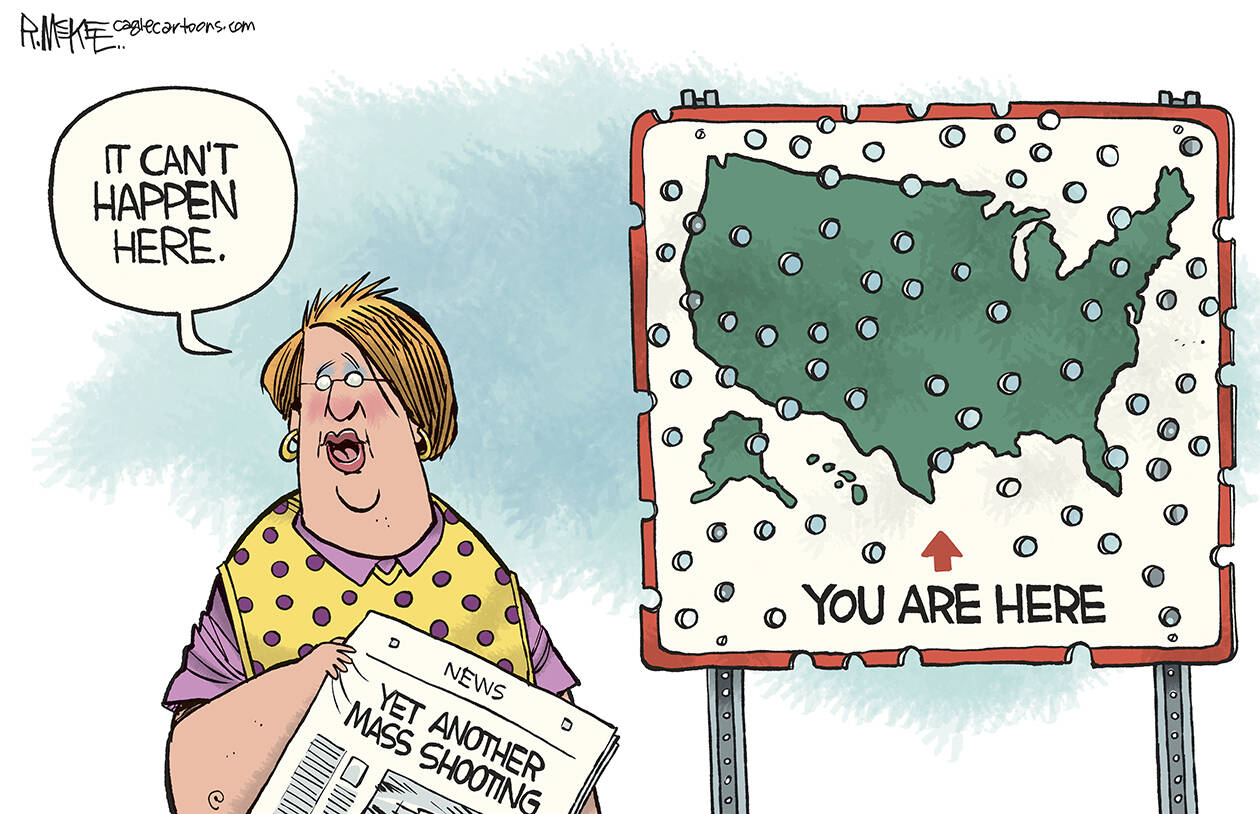When an entire kindergarten class was murdered by Adam Lanza two weeks before Christmas in 2012, I was paralyzed with grief. Usually, when tragedies occur to other people, I say a prayer and move on. But that all changed with Newtown. When I saw those sweet young faces, a class portrait of promise and then immense grief, it felt as if I had lost my own family.
While most commentators were talking about gun control, I was focused on mental health because Lanza was clearly a troubled man whose depression and sociopathy had been ignored until it was too late. Back then, it was still possible to raise the issue of psychosis and mental illness without being labeled intolerant. People were willing to listen to the possibility that guns do not shoot themselves, and that the greatest danger to society is not a bullet, but a damaged and untreated psyche.
Not anymore. Not only are those of us who want to focus on mental health accused of being mean to the afflicted and apologists for the gun lobby, we are targeted as bigots. That came full circle recently with the mass shooting in Nashville. Like Newtown, the shooting involved children and was hauntingly reminiscent of what happened over a decade ago. When children are murdered, that changes everything. The conversation rises to a different level.
But unlike Newtown and to a much lesser extent Uvalde, which was overshadowed by the cowardice and incompetence of law enforcement, the shooting in Nashville showed just how far down into the rabbit hole we have gone. The shooter, whose name I will not repeat because she deserves to be erased from the book of humanity, reportedly identified as a trans man.
As of this writing, her entire motives are not clear, but it is clear that she targeted a Christian school, one that she had attended 20 years before. And while no one has conclusively established that hostility toward Christianity and conservative social policy played a role in the massacre, some in the media clearly believed that was the case. Not only did they believe that this was the motive, they seemed to think it was justified.
For example, Terry Moran from ABC News reported on the shooting while making sure to note that Tennessee had passed some anti-trans legislation, a strange comment to make while the bodies of massacred children who had nothing to do with trans controversies were not even at the funeral home.
And then there was a fellow named Benjamin Miller, who tweeted that the shooting took place in Nashville, which was also the location of a media company, the Daily Wire, that had personalities like Michael Knowles, Ben Shapiro and Matt Walsh who fomented transphobia.
And there was pushback from people in the trans community who were angry that the media “misgendered” the assassin by refusing to call the biological female a “him,” her preferred gender identity.
I watched all of this unfold, and wondered if anyone was going to tell the emperor that he — or she — had no clothes. The person who murdered six people during a normal school day was mentally disturbed, and a lot of that illness manifested itself in her gender identity.
It is unpopular to say these things. JK Rowling knows that, as does Abigail Shrier, as does anyone who has been vocal about the psychological disconnect among people who claim to have gender dysphoria. They have been so successful in gaslighting us into believing there is no mental health aspect to this that they have forced the American Psychiatric Association to drop it from the list of disorders.
Now, the furthest they will go is to admit that some people with gender dysphoria “might” develop mental problems. This refusal to be blunt about the nature of mental illness is leading to chaos. It hurts both the person suffering from the dysfunction, as well as the people with whom he or she comes in contact.
Society seems willing to completely ignore the needs of those who are literally dying because we choose to “affirm” their life choices as opposed to helping them deal with conflict. The rate of suicide in the trans community is higher than the national average. Of course, trans activists say that this has to do with lack of acceptance, but the rate has not decreased as our societal acceptance has increased.
Mental illness is no longer a badge of shame, a scarlet letter. Those who are suffering from it are rightly considered courageous when they seek help. Why, then, are we afraid to say the obvious: transgenderism can be a sign of mental illness, and mere acceptance is not compassionate. Perhaps Nashville will be the moment when we speak frankly to the emperor.
Copyright 2023 Christine Flowers, distributed exclusively by Cagle Cartoons newspaper syndicate. Flowers is an attorney and a columnist and can be reached at cflowers1961@gmail.com.




